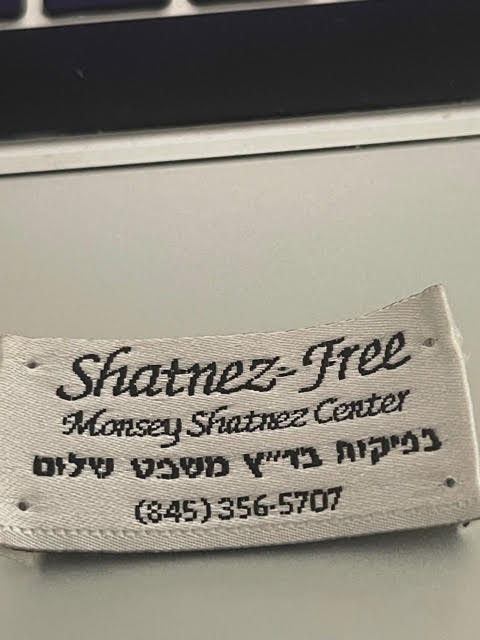What is this and why is this — and why is this now (i.e. in this week’s Parsha)?
| יא לֹא תִלְבַּשׁ שַׁעַטְנֵז, צֶמֶר וּפִשְׁתִּים יַחְדָּו. {ס} |
Deut 22: 11 Thou shalt not wear a mingled stuff, wool and linen together. {S} |
Oh, that’s a relief – it’s Shatnez Free – so don’t sweat it . . .

Notes:
- The word is not of Hebrew origin, and its etymology is obscure. The Septuagint translates the term as κίβδηλον, meaning ‘adulterated’.
- The Mishnah in tractate Kil’ayim (9:8), interprets the word as the acrostic of three words: שע ‘combing’, טוה ‘spinning’, and נז ‘twisting’.
- The Modern Hebrew word שעטנז means ‘mixture’.
- It may also be observed that linen is a product of a river agricultural economy, such as that of the Nile Valley. At the same time, wool is a product of a desert, pastoral economy, such as that of the Hebrew tribes. Mixing the two together symbolically mixes Egypt and the Hebrews.
- Special note for Alan Katz: It also violates a more general aversion to ‘mixing categories’ found in the Leviticus ‘Holiness Code,’ as suggested by anthropologists such as Mary Douglas.
Please follow and like us:
